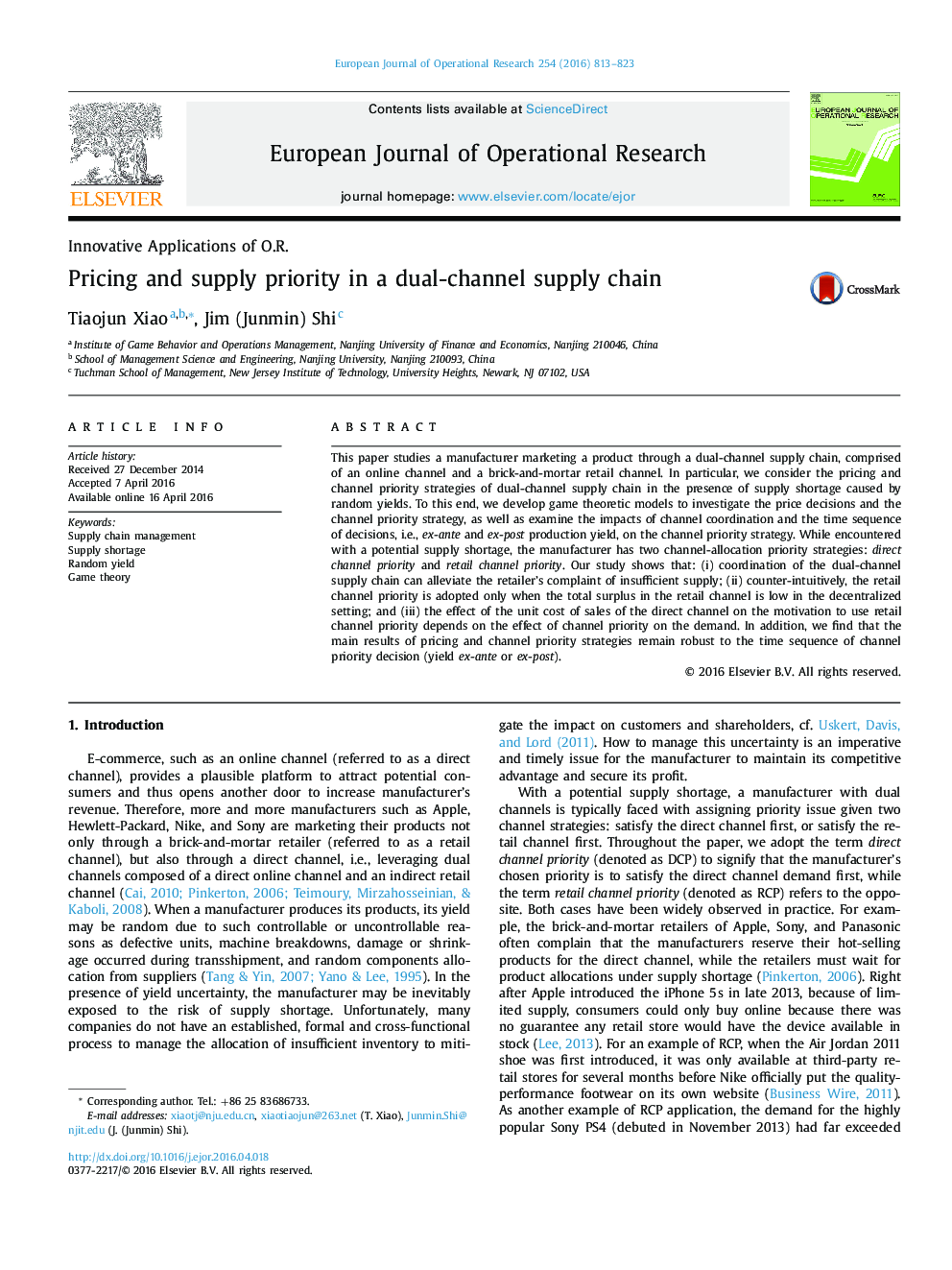| Article ID | Journal | Published Year | Pages | File Type |
|---|---|---|---|---|
| 480508 | European Journal of Operational Research | 2016 | 11 Pages |
•We study channel priority strategy of a dual-channel supply chain facing potential supply shortage.•We examine the effects of coordination/decision sequence of channel priority on priority strategy.•Channel coordination can alleviate the retailer's complaint of insufficient supply.•A higher total surplus in retail channel dampens the motivation to leverage retail channel priority.•Pricing and channel priority strategies are robust to the time sequence of channel priority decision.
This paper studies a manufacturer marketing a product through a dual-channel supply chain, comprised of an online channel and a brick-and-mortar retail channel. In particular, we consider the pricing and channel priority strategies of dual-channel supply chain in the presence of supply shortage caused by random yields. To this end, we develop game theoretic models to investigate the price decisions and the channel priority strategy, as well as examine the impacts of channel coordination and the time sequence of decisions, i.e., ex-ante and ex-post production yield, on the channel priority strategy. While encountered with a potential supply shortage, the manufacturer has two channel-allocation priority strategies: direct channel priority and retail channel priority. Our study shows that: (i) coordination of the dual-channel supply chain can alleviate the retailer's complaint of insufficient supply; (ii) counter-intuitively, the retail channel priority is adopted only when the total surplus in the retail channel is low in the decentralized setting; and (iii) the effect of the unit cost of sales of the direct channel on the motivation to use retail channel priority depends on the effect of channel priority on the demand. In addition, we find that the main results of pricing and channel priority strategies remain robust to the time sequence of channel priority decision (yield ex-ante or ex-post).
